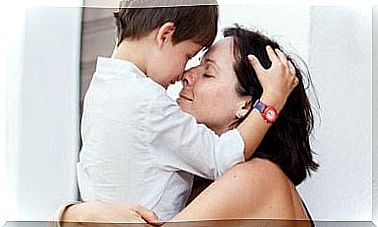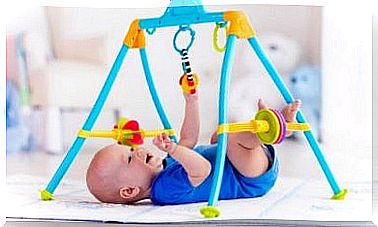The Differences Between Shy And Introverted Children
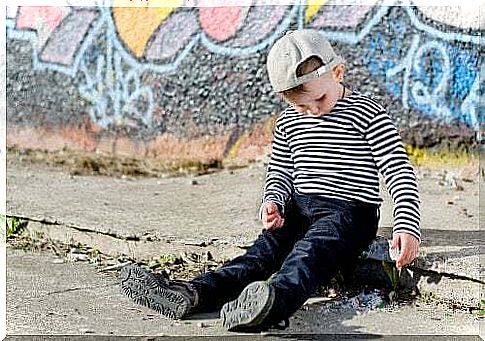
To do a good job as a parent, getting to know your children thoroughly is a priority. For example, being aware of the differences between shy and introverted children will help you a lot in knowing what your child needs and how you can help them.
For years, the meaning of shyness has been colloquially associated with very different realities. When we see a child alone, away from his peers, we think he is shy. However, many times this is not the case.
Shyness and introversion are often confused because the behaviors that cause them are very similar. On the other hand, the inner emotional state of a shy child and that of an introvert are truly different. In this article, we will try to understand the differences between shy and introverted children.
What is shyness?
Shyness is the tendency to avoid social interactions because of shame or fear that others value you negatively. Shy children are uncomfortable and anxious when interacting with others.
These children have little self-confidence and often lack certain social skills. Therefore, when they relate to others, they tend to be very concerned about their own actions and are afraid of being made fun of.
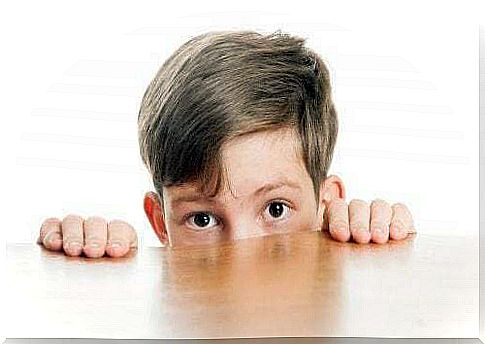
For this reason, shy children avoid being the center of attention, feel anxious when it comes to meeting new people, and find it difficult to let go until they are trusted.
What is introversion?
Introversion, on the other hand, is the main characteristic of the quiet, reserved and introspective. These children show little interest in people and new situations and tend to remain distant from other children unless they are close friends.
They are not afraid of social interaction, they are not afraid of being judged, and they may also have excellent social skills. What happens is that they enjoy the company of themselves, they feel more comfortable alone.
They can relate perfectly to other children and enjoy that interaction. However, it is possible that after a while they feel over-stimulated and want to be alone, as it is their way of recharging their energies.
Differences between shy and introverted children
Both shyness and introversion cause children to tend to drift away from their peers. Either way, they will avoid confusion, crowds and new people and situations. But each of them will do it for their own reason.
- Shy children fear being judged, while introverts are not. The fear of being judged negatively by others is exclusive to shyness. Introverts feel neither fear nor anxiety when interacting with others.
- A shy child does not establish relationships with others out of shame; an introvert for lack of desire. The former feels the desire to interact with other children but does not dare to do so, while the latter simply prefers his own company.
- Introverted children feel too stimulated by socialization; the timid do not. When they spend a lot of time interacting with other people, introverts have to be alone again to recharge their batteries emotionally. Shy children, on the other hand, do not feel this overload.
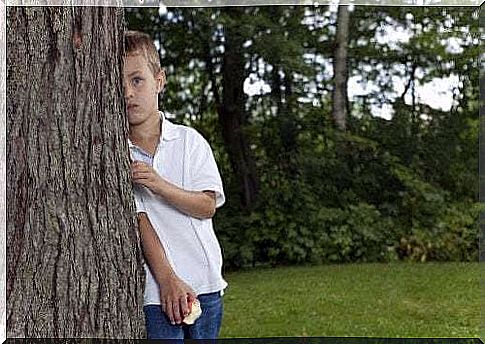
It is important to differentiate the “introversion-extroversion” relationship from the “shyness-determination” one. The first tells us if the person feels more energetic, comfortable and vital alone or in the company of others. The second defines whether or not the person feels anxiety when interacting with others.
Therefore, a child can be shy and withdrawn at the same time. But it is also entirely possible that he is shy but outgoing; or that he is introverted but determined. They are two independent categories.
How to help shy children and introverts?
Introversion is a personality trait, so it’s not a problem. The introverted child is happy to spend time alone and this behavior must be absolutely respected. He will have few friendships, but these will be of quality and, moreover, he will have a very rich and curious inner world.
On the contrary, shyness is, in many cases, a source of unhappiness for the child. Having to relate to others generates anxiety and prevents him from enjoying all the friendships he desires.
To help a shy child, it is recommended that parents show themselves as role models, teach them how to interact and then learn from them. It is also good to provide the child with different social environments in which he can exercise his skills. Most importantly, if shyness limits your life considerably, your best resource will be to seek professional help.



